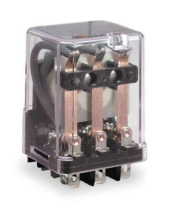Please explain why watt hours is a better measure of amperes that can be pulled from a storage battery.
My thinking is 1000W is 71 amperes at 14 volts and higher amperes as the battery voltage drops closer to 12 volts. Storage batteries store and accept amperes. The storage capacity of a storage battery is amp hours. Watt hours vary with battery voltage. Amperes in or out don't.
And yes. watts are power used by the device, doing Work. to quote wiki "one watt is the rate at which electrical work is performed when a current of one ampere (A) flows across an electrical potential difference of one volt (V)," 745.7 watts is one horsepower. Again work.
Often spell check on this and other forums will not recognize some "whole" words and ask for a hyphen. I think as humans we can recognize a hyphenated word with no confusion.
The amp hour number rating posted on a battery is determined how?
a? A? eh? On an electrical forum is the capitalization of this all that important? I do appreciate the problem with alternating current and air condition.
Na. We be too pedantic, yes? correct use?
Wait wait don't ban me again. I promise to endeavor to use the correct initialism, acronym, punctuation, and capitulation.
for a while anyway..
And I will not ask anymore questions.
Just to be mean, I will post the entire long link from Amazon from time to time.
My thinking is 1000W is 71 amperes at 14 volts and higher amperes as the battery voltage drops closer to 12 volts. Storage batteries store and accept amperes. The storage capacity of a storage battery is amp hours. Watt hours vary with battery voltage. Amperes in or out don't.
And yes. watts are power used by the device, doing Work. to quote wiki "one watt is the rate at which electrical work is performed when a current of one ampere (A) flows across an electrical potential difference of one volt (V)," 745.7 watts is one horsepower. Again work.
Often spell check on this and other forums will not recognize some "whole" words and ask for a hyphen. I think as humans we can recognize a hyphenated word with no confusion.
The amp hour number rating posted on a battery is determined how?
a? A? eh? On an electrical forum is the capitalization of this all that important? I do appreciate the problem with alternating current and air condition.
Na. We be too pedantic, yes? correct use?
Wait wait don't ban me again. I promise to endeavor to use the correct initialism, acronym, punctuation, and capitulation.
for a while anyway..
And I will not ask anymore questions.
Just to be mean, I will post the entire long link from Amazon from time to time.







